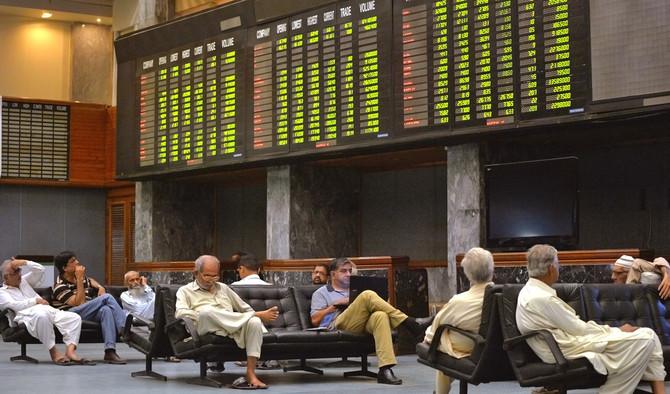Auto giant Tesla reports more than $1 billion in net income during second quarter
Elon Musk's Tesla reported second-quarter earnings after the bell Monday, and it’s a beat on both the top and bottom lines. Shares rose about 2% after-hours. Here are the results.

Earnings: $1.45 vs 98 cents per share adjusted expected, according to Refinitiv
Revenue: $11.96 billion vs $11.30 billion expected, according to Refinitiv
The company reported $1.14 billion in (GAAP) net income for the quarter, the first time it has surpassed $1 billion.
Overall automotive revenue came in at $10.21 billion, of which only $354 million, about 3.5%, came from sales of regulatory credits. That’s a lower number for credits than in any of the previous four quarters. Automotive gross margins came in at 28.4%, higher than in any of the last four quarters.
Tesla had already reported deliveries (its closest approximation to sales) of 201,250 electric vehicles, and production of 206,421 total vehicles, during the quarter ended June 30, 2021.
The company also reported $801 million in revenue from its energy business, including solar photovoltaics and energy storage systems for homes, businesses and utilities, an increase of over 60% from last quarter.
While Tesla does not disclose how many energy storage units it sells each quarter, in recent weeks Musk said, in court, that the company would only be able to produce 30,000 to 35,000 at best during the current quarter, blaming the lag on chip shortages.
Tesla also reported $951 in services and other revenues. The company now operates 598 stores and service centers, and a mobile service fleet including 1,091 vehicles, an increase of just 34% versus a year ago. That compares to an increase of 121% increase in vehicle deliveries year over year.
A $23 million impairment related to the value of its bitcoin holdings was reported as an operating expense under “Restructuring and other.”
The company’s cash position decreased about 5% from last quarter, to $16.23 billion. The decline was “driven mainly by net debt and finance lease repayments of $1.6B, partially offset by free cash flow of $619M,” the company said in its earnings statement.
Accounts payable — the amount of money Tesla owes suppliers and other service providers — rose by 13.7% from the previous quarter to $7.56 billion.
During the quarter, among other challenges, Tesla faced a backlash from consumers in China, recalls in China and the US, and delayed deliveries of the high-performance version of its flagship sedan, the Model S Plaid.
Institutional and retail investors asked for updates on when the company plans to start commercial production of its Cybertruck and custom battery cells, and how Tesla will weather ongoing parts shortages and the rising cost of raw materials that CEO Elon Musk previously complained about.
Parts shortages have been stubbornly persistent for Tesla and other automakers. In its shareholder deck, Tesla said that it had delayed the launch of the Semi truck program until 2022.
On the shareholder call Monday, Musk said a “big struggle this quarter” was to procure enough modules that control the airbags and seatbelts in Tesla vehicles. The lack of supply limited the company’s production both in Fremont, California, and Shanghai.
Musk also said that many fans ask why Tesla doesn’t just make its own chips to avoid shortages. He said that supply chain issues are something Tesla will solve with suppliers, laughing that “It’s not like you can just whip up a chip fab.”
Because Tesla uses a lot of the same semiconductors and battery cells in cars as it does in energy storage products, Musk said, the company has reduced its production of Powerwalls, and its Megapack battery systems for use at power stations is sold out until the end of next year.
SOURCE: CNBC
PM directs easing credit for SMEs, small farmers to boost economic inclusion
- 20 hours ago
Bangladesh in talks with ICC over fate of cricket World Cup games
- a day ago

8BitDo’s new wireless Xbox controller has swappable ABXY button switches
- 3 hours ago

Is this the folding iPhone’s creaseless display?
- 12 hours ago
Spotify makes it easier for video creators to earn, announces new LA studio
- 19 hours ago
Trump's oil push widens with seizure of Russian-flagged tanker linked to Venezuela
- 19 hours ago

Armed Forces remain steadfast in safeguarding country’s sovereignty: Field Marshal
- 10 minutes ago
Green Shirts beat Sri Lanka by six wickets in first T20I
- 19 hours ago

Nvidia’s GeForce Now is getting native Linux and Fire TV apps
- 12 hours ago

What actually is the “Donroe Doctrine”?
- 10 hours ago

This free feature helps make stolen Bosch e-bikes unsellable
- 12 hours ago

How Trump brought the World Cup to America
- 10 hours ago











